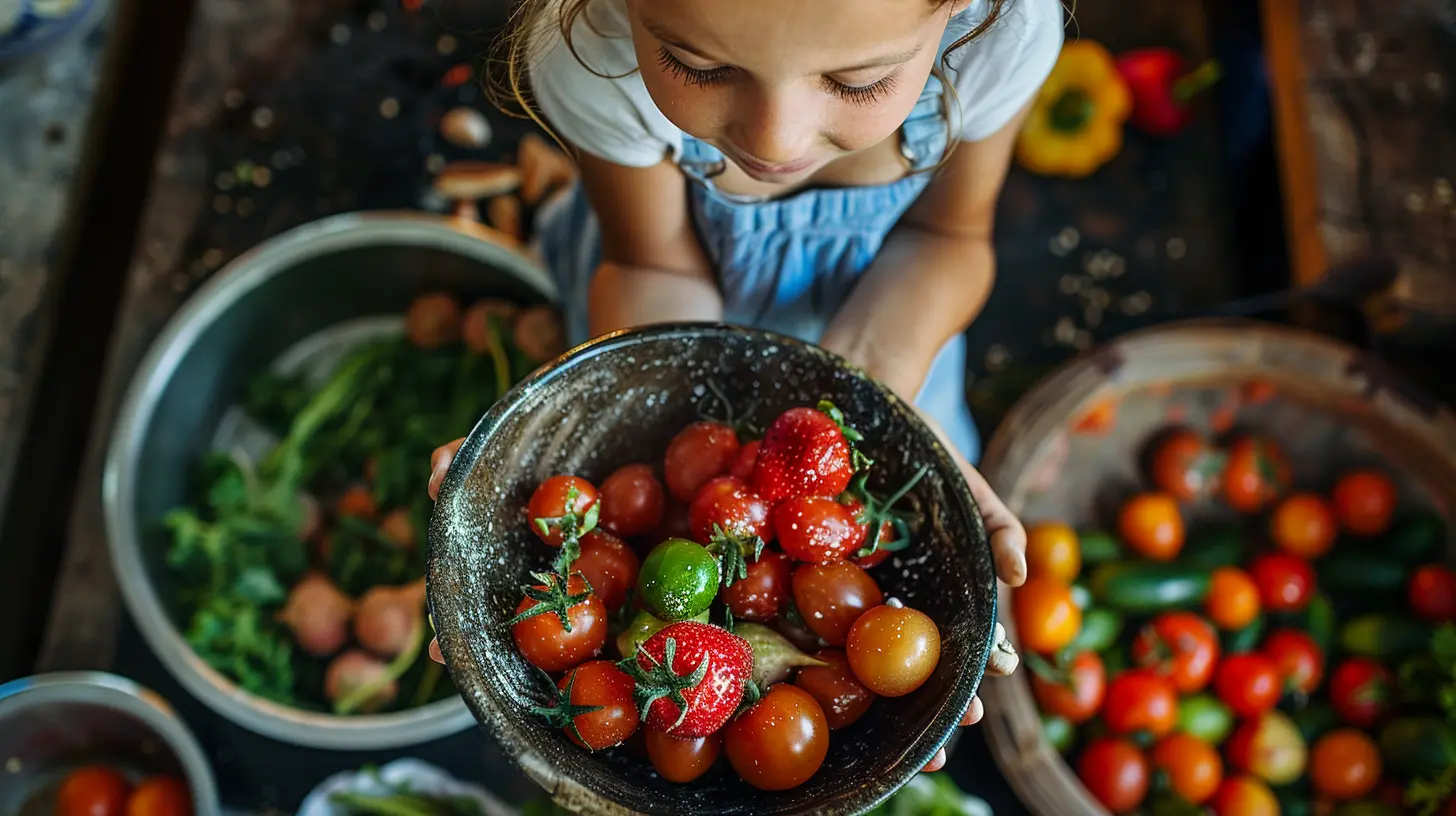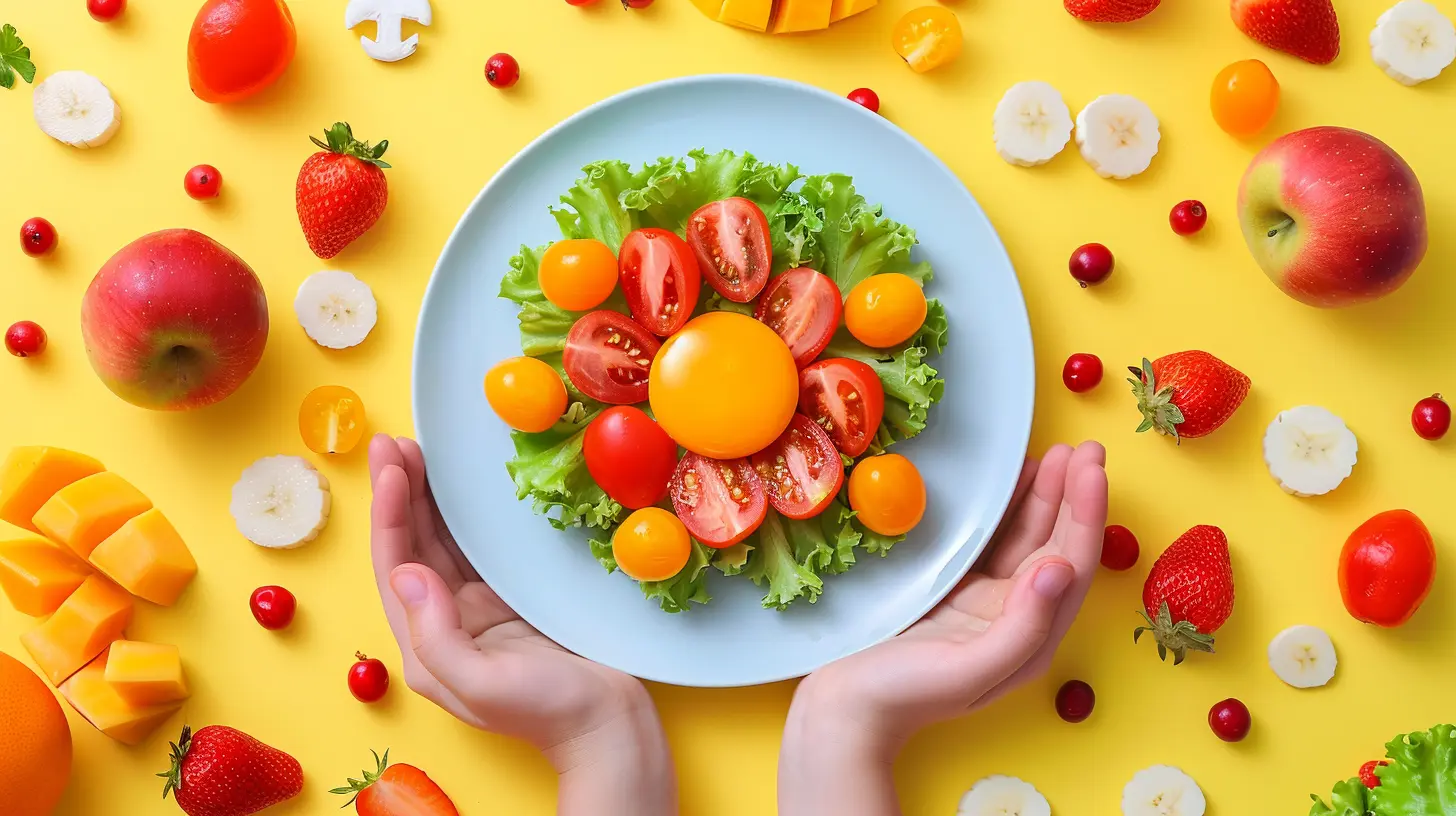Building Healthy Sleep and Nutrition Routines Hand in Hand
24 July 2025
Let’s face it — parenting is a full-time gig. Between early morning school runs, meal prep marathons, and bedtime negotiations that would rival any hostage situation, it’s easy to feel like you're constantly putting out fires. But what if I told you that two of the most powerful tools you have in your parenting toolbox are sleep and nutrition?
Yep, sleep and food. They're the dynamic duo that can drastically improve your child’s (and your) mood, behavior, growth, focus, and overall health. But here’s the kicker: they don’t work in isolation. They’re best friends — linked like peanut butter and jelly — and when you build routines that support both, that’s when the real magic happens.
Let’s dig into how building healthy sleep and nutrition routines hand in hand can totally transform your family life.
Why Sleep and Nutrition Are So Connected
Think of your child’s body like a smartphone. Nutrition is the charger, and sleep is the reset button. Without good food, the battery never really fills up. Without quality sleep, the apps go haywire.When your child eats well, their sleep improves. And a well-rested child is far more likely to eat nutritious foods. It’s a cycle that feeds itself — literally and figuratively.
The science backs it up too. Poor sleep can lead to hormone imbalances that make kids crave sugary, high-calorie foods. On the flip side, a poor diet — especially one high in processed foods — can disrupt sleep patterns. It’s like trying to win a relay race with two runners out of sync.
Let’s break it down further.
How Nutrition Supports Healthy Sleep
You are what you eat. But more importantly, your sleep is what you eat.1. Foods That Promote Sleep
Some foods have natural sleep-promoting properties. They help the body produce melatonin (the sleep hormone) and serotonin (the “feel good” hormone). Here are some kid-friendly options:- Bananas – Packed with magnesium and potassium which help relax muscles.
- Oatmeal – Rich in melatonin and great as a calming night snack.
- Warm milk – Contains tryptophan, which boosts serotonin and melatonin levels.
- Cherries – One of the few natural sources of melatonin.
- Whole grains – Help regulate blood sugar levels, preventing night wake-ups.
- Protein-rich snacks (like a boiled egg or a slice of turkey) – Keep kids full through the night and stabilize energy.
2. Keep the Sugar in Check
A sugar-loaded dinner or bedtime snack? That’s like giving your child a triple shot of espresso before asking them to sleep. Sugary foods spike energy and then crash — not ideal when you’re aiming for a peaceful night.3. Don’t Skip Meals
Skipping meals — especially dinner — can cause your child to wake up in the middle of the night hungry. A balanced dinner with protein, fiber, and healthy fats ensures sustained energy throughout the night.
How Sleep Influences Eating Habits
When kids don’t sleep well, everything goes a little sideways — especially their nutrition.1. Sleep Deprivation = Cravings Galore
Poor sleep can increase the hunger hormone (ghrelin) and suppress the hormone leptin, which tells your brain you're full. That’s a recipe for overeating and constant snacking.Ever noticed how a sleep-deprived child gravitates toward chips, cookies, and chocolate? That’s not a coincidence — it’s biology.
2. Lack of Sleep Affects Digestion
The gut needs rest too. Sleep helps regulate the digestive system, and poor sleep can lead to constipation, indigestion, or upset stomach — which in turn mess with eating routines.3. Mood and Food Go Hand in Hand
Tired kids = cranky kids. And cranky kids are way less likely to cooperate at the dinner table. Establishing good sleep habits makes mealtime less stressful and more enjoyable — no more dinner battles!
Building Balanced Routines: Nourish and Rest Together
Creating routines can sound daunting. But here’s a secret: you don’t need to overhaul your whole life in one weekend. Start small, be consistent, and think of nutrition and sleep as a tag team.1. Establish a Regular Mealtime and Bedtime
Consistency is key. Try to aim for:- Breakfast within 30 minutes of waking up.
- Lunch around midday.
- Dinner at least 2-3 hours before bedtime.
- Bedtime at the same time each night.
The body loves rhythm. When it knows what to expect, it works better.
2. Create a Sleep-Friendly Environment
A nutritious dinner won’t do much if your child’s sleep environment is a circus.- Keep the bedroom cool and dark.
- Use white noise if needed.
- Avoid screens at least an hour before bed.
- Establish a calming bedtime routine (reading, bath, cuddling).
3. Eat for Energy, Not Just Fullness
Help your child understand how food fuels their body. Make meals colorful and appealing. Use visuals — like comparing a banana to a superhero’s power source — to keep them engaged and educated.Weekday Routine Example: The Sleep-Nutrition Balancing Act
Let’s map out a sample weekday routine to see this strategy in action:Morning
- 7:00 AM: Wake up and hydrate with water- 7:30 AM: Breakfast – Whole grain toast with avocado and boiled egg + fruit
- 8:00 AM: Outdoor play or school
Midday
- 12:00 PM: Lunch – Turkey sandwich, carrot sticks, and berries- 1:00 PM: Light activity or quiet time
Afternoon
- 4:00 PM: Healthy snack – Greek yogurt with granola or a banana- 5:30 PM: Dinner prep together (get kids involved!)
Evening
- 6:00 PM: Dinner – Grilled chicken, brown rice, steamed broccoli- 7:00 PM: Wind-down – Bath, storytime, soft music
- 8:00 PM: Bedtime
Stick to this rhythm, and in time your child’s body will sync up like a well-tuned instrument.
Tips to Align Sleep and Nutrition Without Losing Your Sanity
It doesn’t have to be perfect. Life happens. But these tips might make the dance between feeding and sleeping a little smoother.1. Batch Cook and Plan Ahead
Your future self will thank you. Having go-to healthy meals ready means less stress and more time for bedtime routines.2. Say No to Late-Night Snacks
Late eating can interfere with sleep. If your child is truly hungry before bedtime, offer sleep-promoting snacks like warm milk or a banana.3. Make Mornings Count
Breakfast sets the tone for the day. A high-protein, low-sugar breakfast keeps blood sugar stable and sleep hormones balanced.4. Model Good Habits
Your kids are watching. If you’re downing coffee and skipping meals or staying up till 2 AM on your phone, they’ll pick up those cues.5. Stay Flexible
Don’t let a late soccer practice or unexpected tantrum throw everything off balance. Flexibility within a routine is the sweet spot.When Sleep and Nutrition Are Out of Sync
Sometimes, despite your best efforts, your child just won't sleep… or won’t eat. It's okay — you're not alone, and there's often a reason behind the chaos.Ask yourself:
- Is bedtime too late?
- Are they overstimulated before bed?
- Are there too many processed foods in their diet?
- Could they be dealing with stress or anxiety?
Don’t hesitate to reach out to a pediatrician or nutritionist if things feel off for too long. Sometimes it takes an outside eye to spot what’s missing.
The Long-Term Payoff
When your child is well-rested and well-fed, they’re not just healthier — they’re happier, more focused, and more emotionally balanced. And let’s be honest, a household with fewer meltdowns and more smiles? That’s a win for everyone.Building healthy sleep and nutrition routines isn’t about perfection. It's about balance. It’s about small steps, steady progress, and a little bit of grace on the days it all falls apart.
So, next time you’re deciding between letting your kid crash with a candy bar at 9 PM or offering a banana with a warm hug and a bedtime story, remember — you're not just helping them sleep better. You’re laying down the foundation for lifelong healthy habits.
And that, my friend, is the real superpower of parenting.
all images in this post were generated using AI tools
Category:
Kids NutritionAuthor:

Liam Huffman
Discussion
rate this article
1 comments
Mila Riley
Great insights! Establishing routines for sleep and nutrition is essential for children's well-being, fostering healthier habits for lifelong benefits.
August 6, 2025 at 3:41 PM

Liam Huffman
Thank you! I'm glad you found the insights valuable. Establishing these routines truly sets the foundation for a healthier future.


